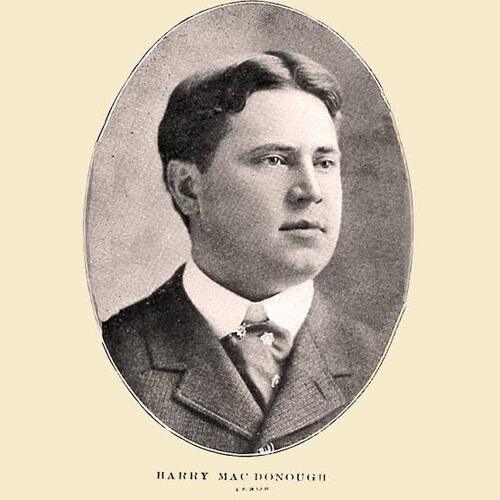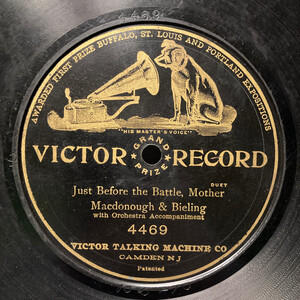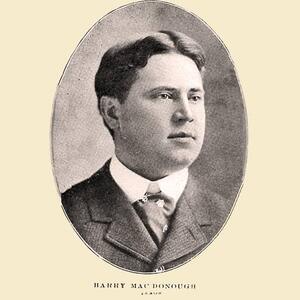Macdonough, Harry
Websites:
https://www.thecanadianencyclopedia.ca/en/article/harry-macdonough-emc
Origin:
Hamilton, Ontario
Biography:
Harry (John Scantlebury) Macdonough (b MacDonald). Ballad tenor, b Hamilton, Ont, 30 May 1871, d New York 26 Sep 1931. He was one of the two most popular ballad tenors of his day, the other being his compatriot Henry Burr. He began his career as a church soloist. In 1898 he made a few recordings for the Michigan Electric Co of Detroit for use in its slot machine phonograph parlours. In 1899 he was invited to record for Edison and became second tenor in the Edison Male Quartet, which later recorded for Berliner and Victor as the Haydn (corrupted to Hayden) Quartet. Macdonough became a professional recording artist for the Victor Co, participating in the Victor Mixed Chorus, Light Opera, and Opera; the Victor Opera Trio, Quartet, and Sextet; the Haydn Quartet; the original Lyric Trio and Quartet; and the Orpheus Quartet. After his retirement from singing, he became manager and an assistant recording director of Victor's New York recording laboratories. In 1925 he joined Columbia as director of recording studios. Listings of his recordings both as a soloist and in groups are given in Roll Back the Years.
Harry Macdonough (John Scantlebury Macdonald) (May 30, 1871 – September 26, 1931) was a Canadian-born singer of Irish and Scottish descent, and recording executive. Under the pseudonym Harry Macdonough, he was one of the most prolific and popular tenors during the formative years of the recording industry. Based upon the ledgers of the four major record companies of the early twentieth century (Edison, Victor, Columbia and Brunswick), which are accessible online through the Discography of American Historical Recordings (DAHR), some of his most popular recordings included “Shine On, Harvest Moon” (with Elise Stevenson), “Down By The Old Mill Stream”, “They Didn’t Believe Me” (with Olive Kline), “Tell Me, Pretty Maiden” (with Grace Spencer), and “Where The River Shannon Flows”.
Macdonald was born in Hamilton, Ontario, Canada. His earliest recorded performances were for the Michigan Electric Company in Detroit, which made phonograph cylinders for penny arcades. He caught the attention of Edison Records with a demo recording he made in October 1898, and began recording for Edison in the Haydn Quartet. From 1899 until his retirement in 1920, he recorded hundreds of songs both as a soloist and in ensembles.
One of Macdonald's lesser-known performances is for performing "Tessie", then billed as "Tessie (You Are the Only Only Only)" from the Broadway musical The Silver Slipper in 1903, becoming a rallying cry for the Boston Red Sox until 1918 and starting again in 2004 during the World Series.
During the 1900s, Macdonald took a job with the Victor Talking Machine Company, becoming assistant manager and later manager of its New York City studio. As studio manager he oversaw the studio schedule, as well as negotiating contracts with artists and music publishers. In October 1913, he recorded a duet with the American singer Marguerite Dunlap of "When It's Apple Blossom Time in Normandy". Macdonald rose rapidly at Victor, becoming its national sales manager in 1920 and manager of artists and repertoire in 1923. He moved to Columbia Records in 1925 and oversaw the technical development of its studios until his death.


